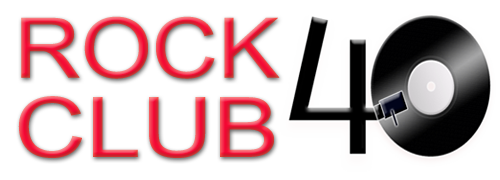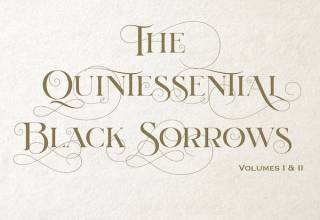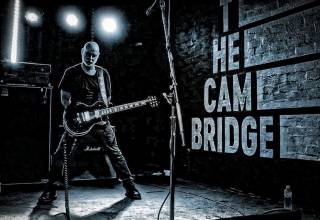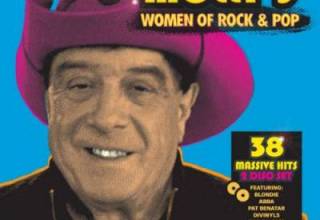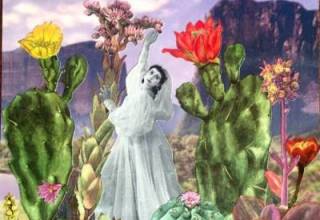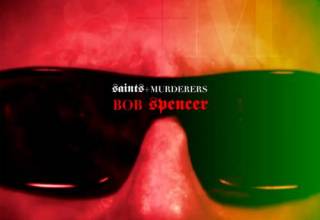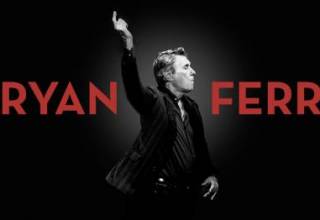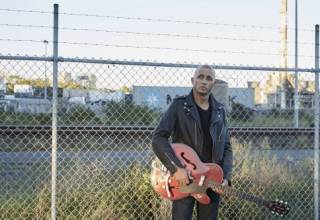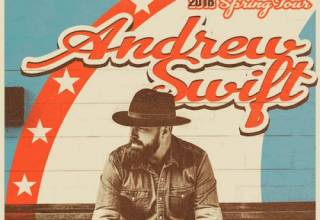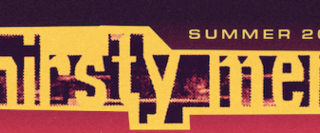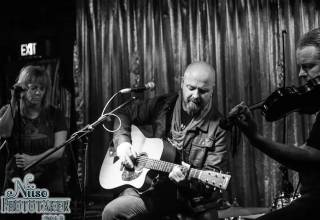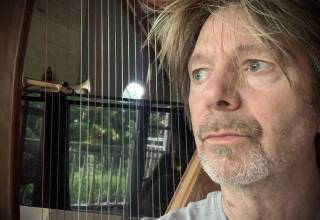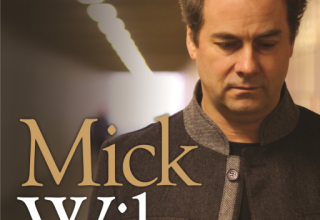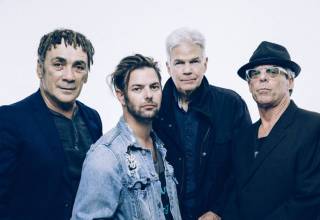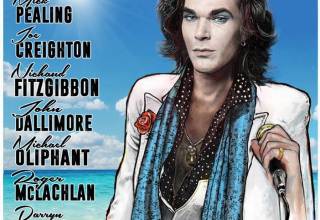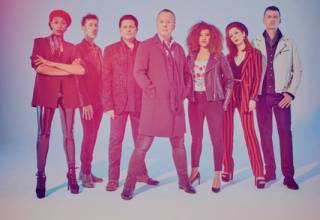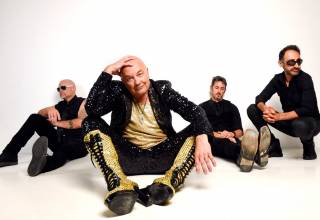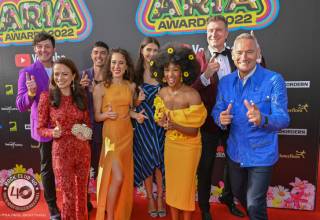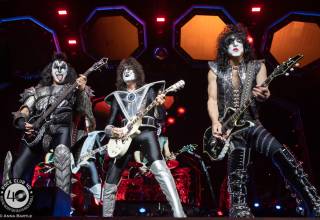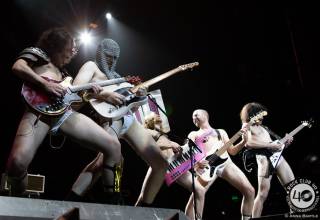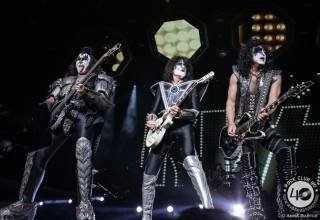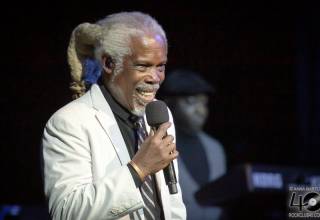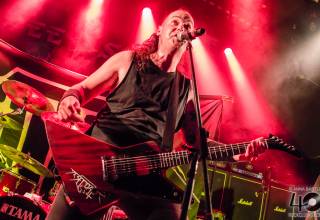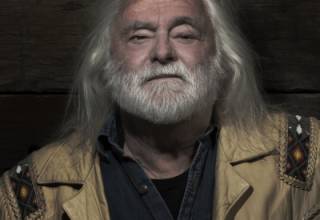Photo courtesy of Philip Morris
Continuing our special three part interview with guitarist Harvey James…
After leaving Sherbet in 1982, Harvey James joined forces with singer/songwriter, Richard Clapton. “With all the bands I did play in, I really enjoyed the task at hand but, playing with Richard was just a fantastic experience,” he tells me. “That band was just like a family. We never had an argument. And I’ll never forget the first rehearsal I had with Richard and the band. I’d learnt the songs and I went in there and started playing and Richard turned to me and said ‘Harv, what are you doing?’ and I said ‘I’m playing the songs’ and he said ‘I’ll play the chords, you just enjoy yourself.’ It was really a great creative experience playing with Richard. Richard’s songs were basic, not intentionally trying to be clever musically. I don’t know where it came from but his songs were perfectly structured, just fantastic songs.”
He recalls a time when he was at the Tamworth Country Music Festival, working for Maton Guitars. “Maton Guitars is a big part of Tamworth. We had that representation there every year. Richard was playing up there and I hadn’t seen him for years. He was obviously having a really bad night, foldback wise, and when they were finished, I went backstage and all the young guys in the band were just standing around and I said ‘Where’s Richard?’ and they said ‘He’s in the dressing room.’ Anyway, it turned out that the young guys in the band were all too scared to go in the dressing room because Richard wasn’t in a real good mood. And I just kicked the door open and said ‘Richard, what are you doing?’ Obviously, he wasn’t happy. I said ‘Look Richard, years ago when we were playing together, if you weren’t happy, you’d be throwing chairs around. You’d be going bananas!’ He said ‘Harvey, you’re right!’ So he grabbed a few chairs and chucked ‘em up against the wall… and then he was fine.”
Harvey also spent some time playing in Marc Hunter’s band after the singer left Dragon and he has nothing but good memories of his old friend. “Marc was a very, very intelligent man. Playing with Marc was fantastic. There was a closeness there.”
“Speaking of Dragon,” he says “I’ll tell you a funny story. When I was in Sherbet, we had a house in Paddington and Paul Hewson, the keyboard player from Dragon, lived with us. Dragon were a fantastic band, great songwriters. Paul has passed away now. I’ll never forget this one night. We’d been to The Bondi Lifesaver in Sydney which was our hangout. Everybody went there. It was just a great place to go and this one particular night, we came back and I tried to go to sleep. I was lying there for about two hours and I thought ‘This ain’t gonna work’ so I got up and at the back of the house, it was like a quadruple terrace house in Paddington, we had a little balcony out the back and Paul was sitting out there with my Maton CW80 acoustic guitar. I got up and made myself a cup of tea and Paul said ‘I’ve just written a song. I’ll play it to you.’ And the song was ‘April Sun in Cuba’. The bastard wrote it on my guitar!” he laughs.
I joke to Harvey that he probably never got a share of the royalties. “Nah!” he scoffs. “But I should have charged him a hire fee.”
“Paul was a big chess fan,” he explains “and that song, ‘April Sun in Cuba’ he was telling me he got the idea from a book about a Russian chess player. There was a big chess tournament in Cuba and the heat really put him off. He couldn’t concentrate and it was in April in Cuba and that’s where he got the name from: ‘April Sun in Cuba’.”
Harvey’s stint with The Party Boys happened almost by accident. “At that point in time, I was living in Kingsford (in Sydney) and Mossy and myself were living in the same house. Actually, Mossy and I lived together for about five years. And with them being an Adelaide band and me going to Adelaide a lot, we all sort of ended up as brothers, if you know what I mean. At that point in time, being the guitar player from the satin clad Sherbet and Ian, Jim, Steve, Phil, and Don being the Chisel boys, every now and then, the Chisel boys would say ‘Harvey, come up here and have a blow.’ The guitar player from Sherbet, on stage, having a blow with the Chisel boys in front of the great unwashed?! The audience was always taken aback. They’d say ‘Hang on. This is Cold Chisel. What’s that poof from Sherbet doing up there?!’ It was really quite funny. Steve Prestwich used to always tell me off for joining Sherbet. I suppose, musically, I was on the same wavelength as those guys. If you track back to their musical roots and my musical roots, they were all pretty much in the same vein.”
Harvey was living with Ian Moss when he had a phone call from Paul Christie. “Paul said ‘Is Ian there?’ and I said ‘No, he’s not home.’ Paul and I started having a chat. Paul told me what he planned for The Party Boys. I said ‘It sounds fantastic Paul’ but I knew Ian really well and I knew that doing that wouldn’t be on Ian’s radar at all. I said ‘Well, I’ll leave a message for Ian and I’ll tell him you called but I have a gut feeling that Mossy won’t do it.’ And Paul said ‘Well, if Mossy won’t do it, would you be interested?’ I don’t think I was doing anything much at the time, nothing worthwhile, and I said ‘Yes.’ As it turned out, Ian, for his own reasons, didn’t do it and I was in to bat.” Harvey had thought that his days of having hit records were over. “Honestly,” he admits, “no one was more surprised than me. We did one gig at the Manly Vale Hotel and Paul organized to get the ABC outside broadcast van there. We recorded it all straight down to 2 track and the whole thing was just live! I think a lot of bands record it live and then they go into the studio and they say well, the guitar player wasn’t quite right, the vocal wasn’t quite right so they then try to get a ‘live’ sound on the guitar player or the drum part or whatever and try to get the same sound. That ‘Live at Several 21sts’ album, from memory, is backed straight down the 2 track on the ABC outside broadcast van into the studio, went onto a larger tape, went straight on to a record and it went gold, which is quite amazing. And they had minimal rehearsal, minimal P.A., there was no huge production. The first gig we did was at Whale Beach at the Surf Club there and the joint was packed, absolutely packed! When I was in the band, there was James Reyne, Kevin Borich, Buzz Bidstrup, Paul Christie and myself. The whole concept of The Party Boys was that it was a sliding population all the time and I was the first one to go. First singer was James Reyne and then, following the album, we got Richard Clapton. It was the same line up, it was just Richard singing, not James. It was a fantastic concept and really well received by the public.”
It was while working with The Party Boys that the guitarist picked up the nickname ‘Harry’. “We were playing at a pub inBrisbane and, when we turned up, there was this huge banner and it said ‘The Party Boys – Kevin Borich, James Reyne, Harry James, Paul Christie, Buzz Bidstrup’” he laughs. “And, from that day on, I became ‘Harry’.”
But, while Harry… er… Harvey loved his work, he eventually came to realise that the life of a rock and roll musician doesn’t always pay the bills and, finding himself with a mortgage and starting a family, he was forced to take stock of his life and make some pretty tough decisions. “I was sitting at home one Saturday, feeling bored, and I thought ‘This is all well and goodHarvey but how the hell are you going to raise a family on the income of an itinerant musician?’ There was a job at Billy Hyde’s in Leichhardt and I thought, what the hell, I’ll just go and have a chat and, if I get the gig, I’ll do it for a couple of weeks and, if I don’t like it, I’ll go back to playing. And I got the gig and, twenty three years later, I was still doing the same thing. But, during that period, I had a lot of challenging gigs. I worked for Fender Australia. And then, I just finished up about a year ago with Maton Guitars so the playing thing, I just let it slip because I couldn’t do both. The most important thing was the children’s school fees and the electricity bills, and that sort of thing so I put my head down and got stuck into that.”
But, as Harvey discovered, the musical instrument wholesale business is a pretty tough gig. “On the one hand, you make good friendships out there with a dealer. And if their figures aren’t good enough, you really have to do some awful things to them and that really went against the grain with me. I’m not that sort of person. After 23 years of doing the same thing, I said I just can’t do this any more. I couldn’t lie to people just for the sake of making a sale. I think, as a result, the sales that I did make over the years, and there were quite a lot of those, were based on mutual trust. If you’re honest, people will pick up that you’re honest and once you’ve established that relationship, you’ll do nothing to jeopardise that at all. You succeed or fail based on your approach to other human beings on this planet and that’s how I try to live my life as well. I like to be able to go to sleep at night and wake up in the morning feeling good about myself. I don’t want to wake up in the morning trying to rake over the trail of destruction I left the day before.”
When it comes down to it, though, Harvey’s passion is playing guitars, not selling them and that passion has not waned with the passing of time. “I still have a burning ambition to play,” he admits “and I don’t think my playing has degenerated over the years. I think it has probably gotten better. I just have to find a forum that I’m comfortable with. I know, from my previous body of work, that I can take music to a place that nobody else can and I want to share that again but I want to do it in the right environment. Being in a band, as far as I’m concerned, friendship and understanding of each other, means a lot more than somebody’s out and out musical talents. You need to surround yourself with like-minded people.”
His love of music is evident as he speaks. “There’s a lot of emotion involved in music as well. When something you play is from the heart, you can tell, especially being a soloist, sometimes you start your solo, you don’t know where you are going to start or where you’re going to finish, it just seems to get channelled through you. At the end of it, people come up to you and say ‘That was fantastic. How did you do that? And you say ‘I don’t know.’ Everybody gets to share it. You just happen to be the medium that’s delivering it. When you do have those moments and people are there, witnessing it, they actually feel it too, which becomes a very spiritual thing and there is something very spiritual about music if you want it to be. Music takes you to a place you would never otherwise go.”
In 2006, the guitarist made a brief return to the stage with his former band, Sherbet, when they headlined The Countdown Spectacular Tour. Although Sherbet had previously reformed for a few one-off performances, including a benefit for their close friend, Ted Mulry, an appearance at a wake for former Sherbet roadie and friend, Wayne Jarvis and a special guest appearance on Elle McFeast’s New Year’s Eve Special 1998/99, this was the first time the band had toured together since saying ‘farewell’ to their fans in 1984.
“I suppose the best thing about The Countdown Spectacular Tour,” Harvey reveals “from the point of view of being a member of Sherbet, it was great to drag that ‘monster’ out again and actually prove that the thing does have teeth. A lot of people, when they look back at Sherbet, they may remember the satin suits, the screaming girls and whatever but the great thing about doing that Countdown Tour was to actually prove to people that Sherbet was a fantastic live band. And they were. And I think we showed them on that tour.”
The tour brought all the old fans out of the woodwork for the much anticipated opportunity to see their favourite bands from the 70s and 80s perform again but there were also many younger faces amongst the crowd, who had come to see what all the fuss was about. Of course, there were the doubters, expecting to see a bunch of old rockers who no longer had what it takes to bring the audience to their feet. But, as Harvey is proud to declare, that certainly wasn’t the case. “They say age may weary them. Well, we certainly weren’t that weary. We were hell bent on proving that Sherbet was one of the best units that this country’s ever seen. You can forget all the hoo haa. When it comes down to it, Sherbet was a damn fine band live! You had to be there. You had to experience the band ‘live’ There are still recordings and stuff like that but you will never, ever experience the power of a live band until you’re there, listening to them. It’s like watching the car racing on TV. You cannot experience that until you’re standing in front of it, just feeling the power, because you will never, ever feel the power from any record or any recording experience at all, until you’re in the same room, feeling it.” he pauses for a moment before summing it all up. “Sherbet became an event. They were an event for all of us.”
by Sharyn Hamey
Copyright © 2010 Sharyn Hamey All Rights Reserved.
